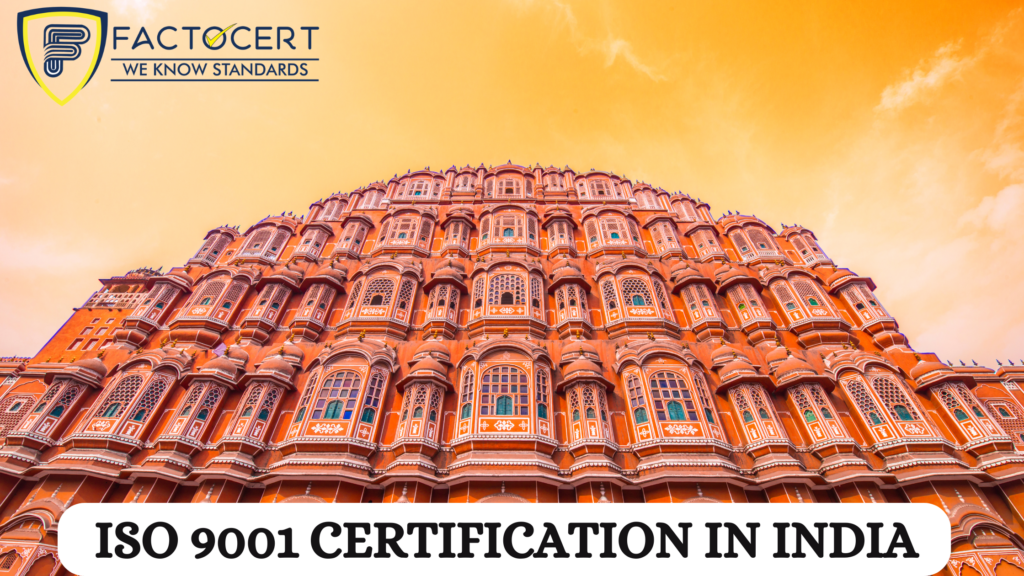Impact of ISO 9001 Certification in India
ISO 9001 Certification in India plays a pivotal role in shaping the quality management landscape in India. As businesses strive to enhance their competitiveness and meet global standards, evaluating the effectiveness and impact of ISO 9001 certification becomes essential.
This comprehensive analysis delves into the evaluation of ISO 9001 certification in the Indian context, examining its benefits, challenges, and overall impact on organizations and the economy.
Benefits of ISO 9001 Certification in India:
- Improved Quality Management: ISO 9001 certification in India fosters a quality culture within organizations, leading to improved processes, products, and services.
- Enhanced Credibility: Certified organizations gain credibility among customers, partners, and stakeholders, boosting their reputation and market competitiveness.
- Increased Customer Satisfaction: ISO 9001 certification in India enhances customer satisfaction and loyalty by meeting customer requirements and delivering consistent quality.
- Access to Markets: ISO 9001 certification in India opens doors to new markets, both domestically and internationally, as many clients and procurement processes require suppliers to be certified.
- Operational Efficiency: Implementing ISO 9001 certification in India standards results in streamlined processes, reduced errors, and better resource utilization, leading to cost savings and improved efficiency.
Challenges in Evaluating ISO 9001 Certification in India:
- Lack of Longitudinal Studies: Limited longitudinal studies tracking the performance of certified organizations over time make it challenging to assess the long-term impact of ISO 9001 certification in India.
- Varied Implementation Quality: The quality of ISO 9001 certification in India implementation varies among organizations, making it difficult to generalize the impact across different sectors and regions.
- Difficulty in Measuring Intangible Benefits: Some benefits of ISO 9001 certification in India, such as improved organizational culture and employee morale, are intangible and challenging to measure quantitatively.
- Compliance vs. Performance: While ISO 9001 certification in India ensures compliance with quality management standards, it does not necessarily guarantee superior performance or competitive advantage.
- Economic Factors: External economic factors, such as market conditions, regulatory changes, and industry trends, can influence the impact of ISO 9001 certification in India on organizations and the economy.
Evaluation Metrics for ISO 9001 Certification in India:
- Customer Satisfaction Surveys: Assessing changes in customer satisfaction levels before and after ISO 9001 certification in India provides valuable insights into the impact on customer relationships.
- Quality Metrics: Monitoring key quality metrics, such as defect rates, rework levels, and customer complaints, helps evaluate the effectiveness of ISO 9001 certification in India implementation.
- Financial Performance: Analyzing financial indicators, such as revenue growth, profitability, and cost savings, enables organizations to quantify the economic benefits of ISO 9001 certification in India.
- Employee Engagement Surveys: Measuring employee satisfaction, motivation, and engagement levels helps gauge the impact of ISO 9001 certification in India on organizational culture and employee morale.
- Market Penetration: Tracking changes in market share, customer acquisition rates, and expansion into new markets provides insights into the competitive advantage gained from ISO 9001 certification in India.
Conclusion:
Evaluating the impact of ISO 9001 certification in India requires a comprehensive approach that considers tangible and intangible factors. While challenges exist in measuring the effectiveness of certification, organizations can leverage evaluation metrics to assess the benefits and continuously improve their quality management systems. By embracing ISO 9001 certification in India as a tool for organizational excellence, Indian businesses can drive sustainable growth, enhance competitiveness, and contribute to the nation’s economic development.
Why Factocert for ISO 9001 Certification in India
We provide the best ISO consultants Who are knowledgeable and provide the best solution. And to know how to get ISO certification. Kindly reach us at contact@factocert.com. work according to ISO standards and help organizations implement ISO certification in India with proper documentation.
For more information, visit ISO 9001 Certification in India.





